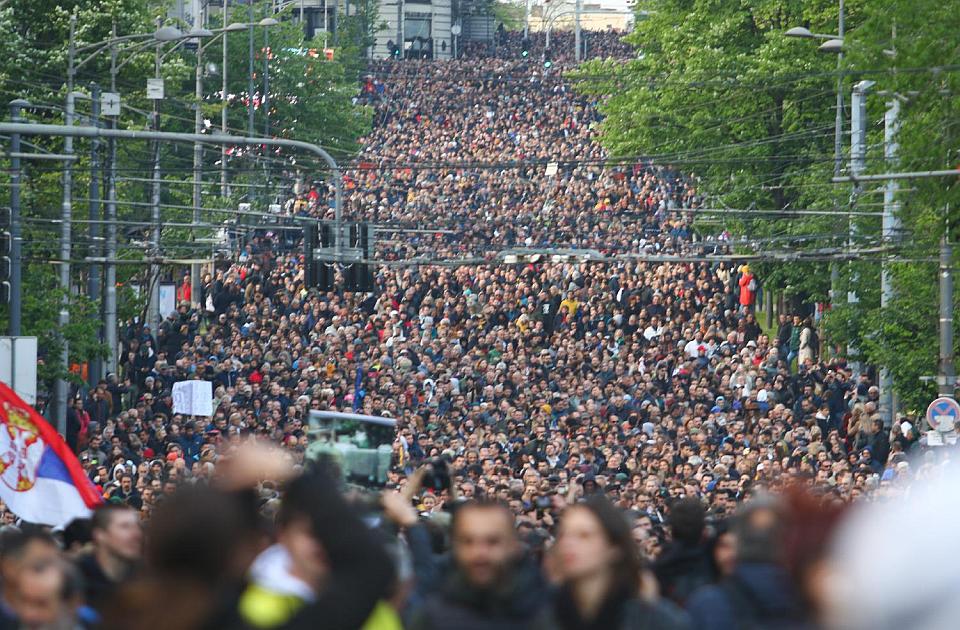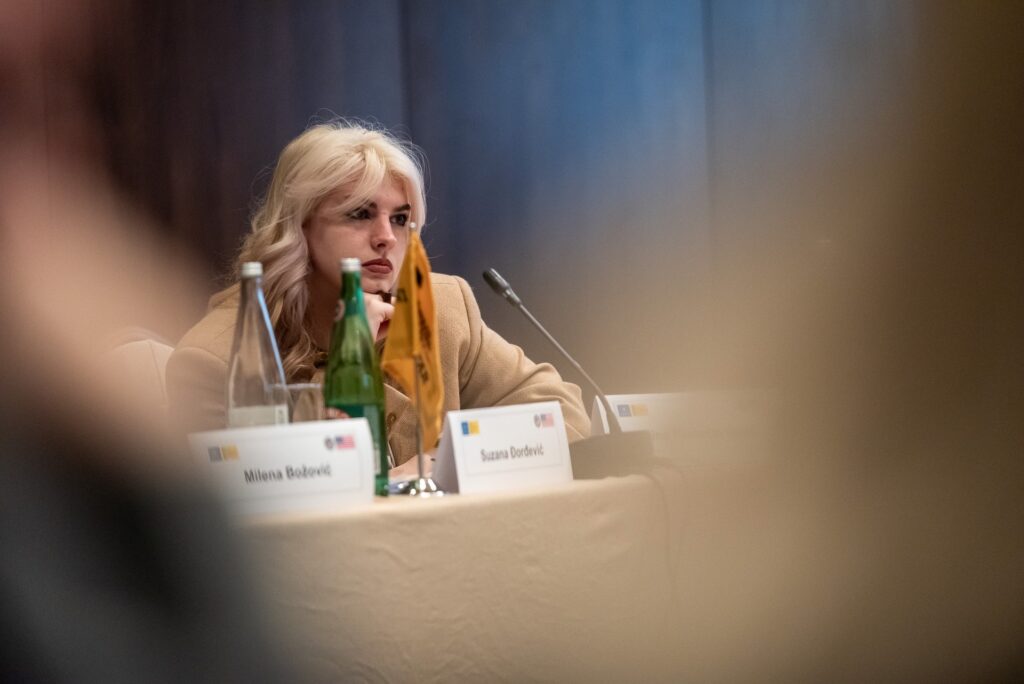Arrests disproportionate criminal charges
What began as a smear campaign by pro-government media outlets in late July, often explicitly supported by the most senior officials, by August escalated into a full-scale crackdown involving widespread arrests across Serbia. In some cases, police arrested and held in custody people only over their posts on social media or their participation in peaceful protests. Over just ten days in August, at least 33 activists were arrested in 17 cities. Some of those detained were charged with the serious and widely disproportionate criminal offence of incitement to violently overthrow the constitutional order, which carries the penalty of up to eight years in prison. Some activists were coerced into plea deals, leading to suspended sentences.
In the process, the activists and journalists were also subjected to sometimes warrantless home searches and widespread seizures of telephones and computers that were subsequently put through invasive digital forensic searches. In some cases, the telephones remain with the police, although the activists have not been formally charged.
Targeting activists and journalists with such disproportionate charges, invasive searches, and digital surveillance violates their rights to privacy, freedom of expression and freedom of assembly and puts at the same risk their contacts and people in their networks.
In November, many young activists were detained and sent to police stations without information on why, where, and how long they would be there. The police refused to introduce themselves and give their badge numbers and, on many occasions, weren’t in uniform. They were denied their right to call their lawyer or parents, and their close ones couldn’t get information on the whereabouts of these young activists.
Arbitrary custody
We have also documented a new trend of civil society representatives being held, some nearly a dozen times, at the border crossings as they attempted to travel. In most of these cases, the activists were not told why and at whose orders they were held at border crossings, nor were they shown any official documents. They were denied access to a lawyer and, following extensive search and several hours in custody, released. This illegal practice stopped after the National Convention on the EU requested the government to suspend the practice of arbitrary custody on two members of this non-governmental civil society coalition. However, it remains unknown whether there are still cases of arbitrary custody on border crossing of other individuals.
Smear campaigns
Starting on August 20, a large-scale smear campaign was launched by TV Informer featuring an extensive report on the alleged “special war against Serbia” by almost 40 organizations (mostly those that promote democratic values and human rights) at the behest of foreign donors. Other government-aligned media joined the effort, branding non-governmental organizations as foreign agents seeking to destabilize Serbia. These accusations were fueled by statements from the Governor of the National Bank, the President, government officials, and MPs, all echoing these claims. One of the most egregious examples is the TV Informer series, which featured detailed charts of NGO finances, including their staff names and bank accounts, alleging that donor funds were being used to finance anti-government protests. Most of this information is not publicly available and could have been only obtained unlawfully.
The scale of the campaign renewed concerns about the potential reintroduction of the so-called Foreign Agents Law, which mirrors similar legislation passed in Russia, Hungary, and, most recently, Georgia. The persistent stigmatization and targeting of civil society have had a serious chilling effect on organisations’ ability to engage young members or mobilize citizens on issues of public interest.
In recent news, the Draft Law on the Special Register of Foreign Influence Agents has been discussed in parliament. This law can seriously endanger the work of CSOs and the fight for minority rights and lead to authoritarian control and political censorship. After pressure from civil society, the Serbian President said he would not accept the Draft Law.
Criminal code changes
There is a particular concern about the recent amendments to the Criminal Code, which could undermine the freedom of media, freedom of expression and access to information.
Specifically, introducing the new offence of Publishing Materials that Provide Advice for the Commission of a Crime, which is too broad and vaguely worded, could allow this provision to be potentially misused against activists, further stifling dissent.
Additionally, the lack of transparency surrounding the Ministry of Justice criminal justice system analysis, which served as the basis for proposed amendments, undermines public trust. It limits civil society’s ability to engage meaningfully with these reforms.
Collectively, these measures constitute a blatant violation of Serbia’s international human rights obligations, including the rights to freedom of expression, assembly, and association. They create an almost impossible operating environment for civil society and journalists and completely erode the confidence of civil society citizens, most of whom receive information almost solely from pro-government outlets.
Conclusion
The work of activists, non-governmental organizations, and the media is constantly put in jeopardy, and they are personally targeted. This is a fight against the regime’s oppression and a call for accountability for those responsible for the tragedies, victims, and laws that go against the interests of our citizens. We will continue to fight, but in this struggle, we need the international community’s support, which should exert pressure on Serbian authorities. Use their good offices to raise the challenges facing civil society before Government officials of Serbia, including arbitrary arrests, disproportionate charges and invasive searches of activists and protesters that undermine privacy rights and freedom of expression, association and assembly. Provide public support to civil society organizations and activists/journalists under threat in public statements, resources and diplomatic assistance.








